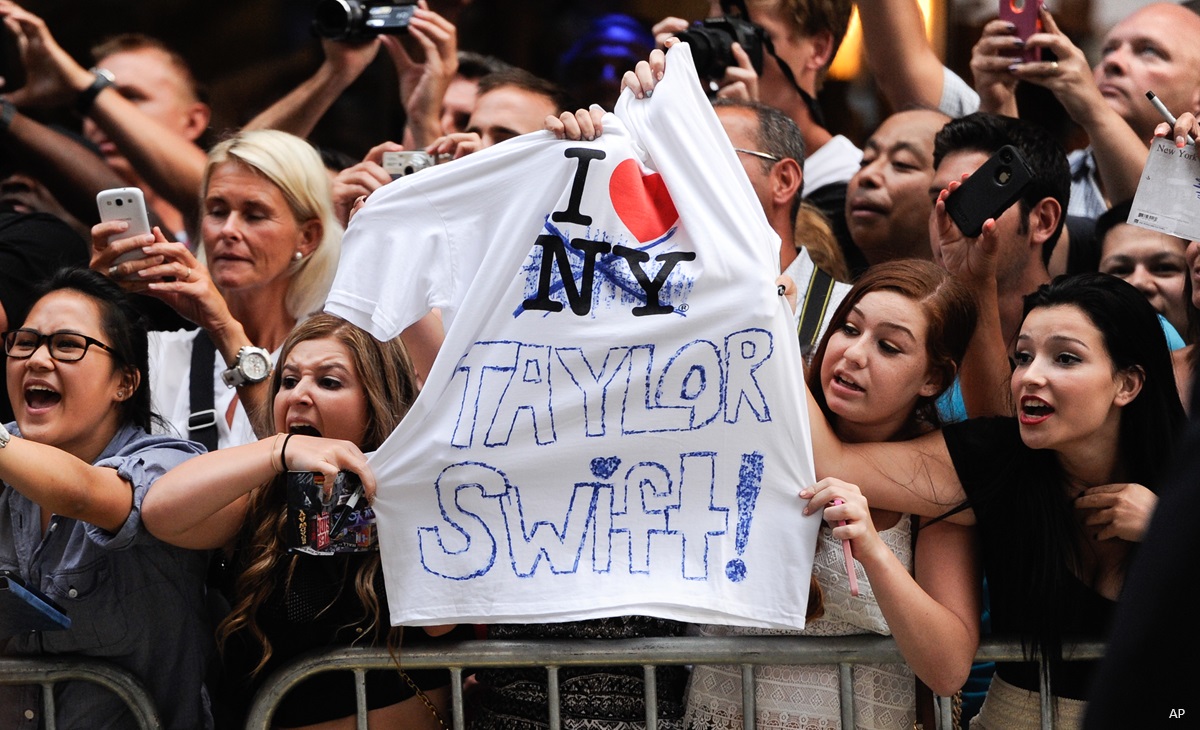


Forget the days of aimless sightseeing and generic vacation packages. Today’s tourists are increasingly driven by a desire for passion-fueled experiences. This emerging trend, known as passion tourism, caters to travellers seeking in-depth exploration of their hobbies, interests, and obsessions. From attending a K-Pop concert in Seoul to chasing the Northern Lights in Iceland, and witnessing rare celestial events such as the total solar eclipse in Mexico, passion tourism goes far beyond the typical postcard destinations.
The economic impact of passion tourism is substantial. For instance, Taylor Swift’s U.K. concerts provided a bump of over US$1.3 billion to the British economy, with accommodation being a significant part of the spending. This shift in consumer behaviour presents a significant opportunity for the hospitality and online travel industry.
Investing in stocks positioned to capitalize on this growing trend could be an opportunistic move for investors seeking long-term growth. With their global and growing footprint, the following hotel and travel companies are well aligned with passion tourism, and their stocks are poised to capitalize on this exciting industry trend.
Global hospitality giant Wyndham Hotels & Resorts operates 872,000 rooms across more than 20 brands. Super 8 is the largest brand (around 19% of all rooms), while Days Inn (13%) and Ramada (14%) are the next two prominent brands. The U.S. accounts for 57% of total rooms.
Wyndham Group aggressively capitalized on the April total solar eclipse craze, enticingly promoting its properties along the path of this rare cosmic phenomenon, as it swept across North America, from Texas to Maine, passing throw Niagara Falls and St. John on the Canadian side.
Wyndham-owned Ramada hotel in Miramichi, New Brunswick, experienced a significant surge in bookings due to the eclipse, with all its rooms reserved for the nights surrounding the event. The rates at Wyndham’s Niagara Falls property in Ontario reportedly skyrocketed from $100 to an astounding $3000 per night during the solar eclipse, as eclipse chasers flocked to the area for prime viewing.
“Despite near-term macroeconomic challenges for the consumer—still-elevated inflation, depleted consumer savings, we expect Wyndham Hotels & Resorts to gradually expand room share in the hotel industry,” says a Morningstar equity report.
The operator’s boasts an impressive 40% share of all U.S. economy and midscale branded hotels, while its pipeline is set to expand by about 28% of its current unit base.
“As a result, we see room growth averaging over 3%-4% during the next 10 years (2024-33), above the 1%-2% lift we model for the US hotel industry,” contends Morningstar equity analyst Dan Wasiolek, who pegs the stock’s fair value at US$88.
Hospitality heavyweight Accor owns 50 brands operating 821,518 rooms ranging from economy to luxury segments. Its most visible brand, Ibis, accounts for 35% of total rooms, while midscale brands Mercure (16%) and Novotel (13%) are other notable brands.
Geographically, Europe and North Africa make up 44% of rooms, followed by Asia-Pacific (34%), the Americas (13%), and India, Middle East, and Africa (10%).
Earlie this year, Accor Stadium in Sydney, Australia hosted four successive Taylor Swift shows, drawing a whopping 335,000 fans. Accor has a number of hotels strategically located near the Accor Stadium, which it owns. As a result, the hospitality group saw a record level of hotel bookings, as well as boost to its ALL-Accor Live Limitless loyalty programme.
Accor is reportedly in talks to acquire luxury hotel brand Habitas, which operates luxury properties in Mexico, Namibia, Morocco, and other countries, with rapid growth in Saudi Arabia.
“Accor’s growing room share is being driven by an increased presence in higher-end luxury and premium rooms, which was 23% of its total in 2023,” says Morningstar equity report.
The company is projected to continue to enjoy economic growth over the next decade “as a result of its solid loyalty membership of around 90 million and increasing exposure to the premium, luxury, and lifestyle segments,” says Wasiolek, who appraises the stock to be worth EUR 43.
Online travel behemoth, Expedia offers services for lodging (80% of total sales), air tickets (3%), rental cars, cruises, in-destination, and other (11%), and advertising revenue (6%). The firm operates several branded travel booking sites, including Expedia, Hotels.com, and Vrbo. It also owns a metasearch brand, Trivago.
Since the announcement of three Taylor Swift shows in Vancouver for December 2024, Expedia has reported a staggering 5,000% spike in searches for the city, a surge it attributes to Gen Z travellers who are increasingly favouring experiential travel. Among its experiential itineraries, Expedia includes a Guided Northern Lights Tour in Iceland.
In addition to new travel trends, the online travel agency is poised to continue to benefit from remote working trend, turbocharged by the pandemic. “We think worker flexibility will increase long-term travel demand,” says Morningstar equity report.
Expedia’s strong user base stems from its leading online travel network, a key advantage that will persist over the next decade, despite challenges from supplier consolidation in U.S., the report adds.
Moreover, Expedia’s ongoing push for the expansion of its international presence could further strengthen its network advantage over time. “In emerging markets, the company has a collaboration with Trip.com, the leading online travel agency in China,” points out Wasiolek, who pegs the stock’s fair value at US$185.
More recently, the company has embraced the transformative power of AI evidenced by the introduction of over 40 new AI-powered product and features, designed to offer a more personalized experience for travellers.